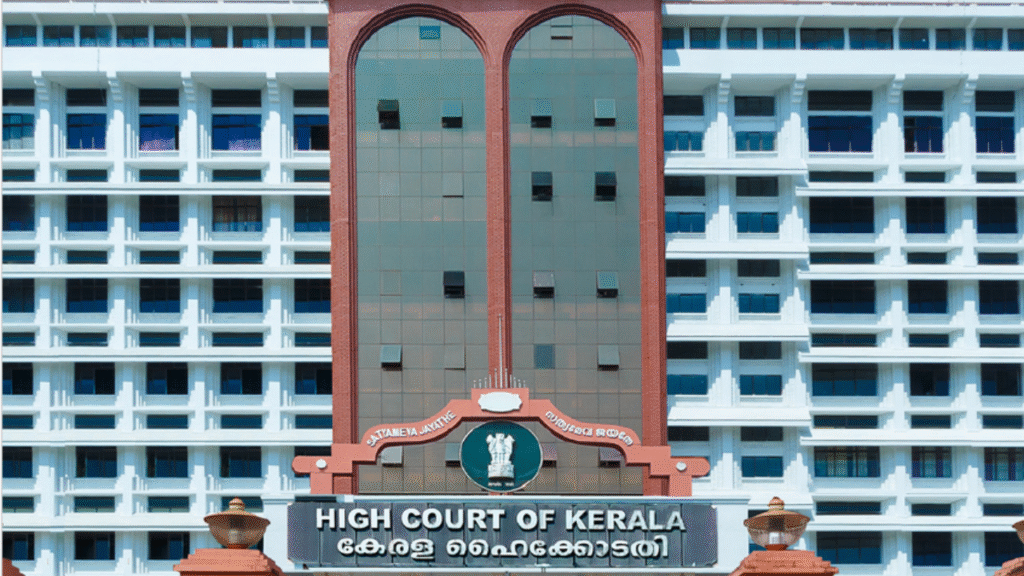Criminal Procedure Code, 1973 (Cr.P.C.) – Sections 329, 331, 332 Mental Healthcare Act, 2017 – Section 105 Constitution of India – Article 227
Criminal Trial – Insanity – Capacity to make defence – Resumption of Inquiry/Trial after postponement due to unsoundness of mind – Procedure to be adopted by Trial Court when accused is reported fit for trial – Role of medical reports and cross-examination – Distinction between Sections 329 Cr.P.C. and Section 105 of Mental Healthcare Act, 2017.
2025:KER:57810 IN THE HIGH COURT OF KERALA AT ERNAKULAM O.P (Crl) No.692/2024 Decided On: August 06, 2025 Hon’ble Mr. Justice G.GIRISH
The petitioner, father of the accused in a case of uxoricide (S.C. No.256/2019), challenged the Sessions Court’s decision to resume trial, contending his son still suffered from paranoid schizophrenia and was incapable of making a defence. The trial had been previously postponed multiple times following inquiries under Section 329 Cr.P.C. due to the accused’s mental unsoundness. A recent medical report (Ext.P6, dated 13.08.2024) stated the accused was fit to stand trial but required continued medication and follow-up. The petitioner alleged non-compliance with Sections 328 and 329 Cr.P.C. and Section 105 of the Mental Health Care Act, 2017.
Held:
On procedure for resumption of trial (Sections 331 & 332 Cr.P.C.): When an inquiry or trial is postponed under Section 328 or 329 Cr.P.C., and the accused is subsequently reported to have ceased to be of unsound mind, the Trial Court must resume the inquiry or trial. The pertinent aspect is the Court’s satisfaction as to whether the accused is capable of making his defence. This finding cannot be arrived at by merely perusing the report of the Medical Officers. The Medical Officer who issued the report must be examined in detail regarding the treatment, the accused’s mental condition, and the reasons for the finding of fitness to stand trial. Crucially, the accused or the person representing him must be afforded an opportunity to cross-examine such Medical Officer and to confront the witness, especially if they contend that the accused has not regained the capability to stand trial. After considering all relevant aspects and applying judicial mind, the Trial Court must decide whether to proceed with the trial. If the accused is found to be still incapable, the procedures under Sections 329 and 330 Cr.P.C. (postponement and further treatment) must be re-adopted. Any denial of such opportunity to the accused or their representative would vitiate the proceedings initiated for resuming the trial. In the present case, the petitioner was not given the opportunity to participate in the inquiry or cross-examine the Junior Consultant Psychiatrist after the Ext.P6 report.
On reference to Mental Health Review Board (Section 105 Mental Healthcare Act, 2017): Section 105 of the Mental Healthcare Act, 2017, enables the Court to seek the opinion of the Mental Health Review Board when “proof of mental illness is produced and is challenged”. However, in an inquiry under Sections 328 and 329 Cr.P.C., the cardinal aspect is not merely whether a person has mental illness, but whether the unsoundness of mind renders the accused incapable of making his defence. An accused with mental illness is bound to undergo trial if their illness does not render them incapable of defence. Sections 328 and 329 Cr.P.C. already provide a more comprehensive and scientific framework for evaluating the mental condition of the accused, including examination by Psychiatrists/Clinical Psychologists and an appeal mechanism to a Medical Board composed of specialist psychiatrists. Therefore, if the procedures under Sections 328 and 329 Cr.P.C. are scrupulously followed, a reference under Section 105 of the Mental Healthcare Act, 2017, is not a mandatory or inevitable requirement. The petitioner’s contention regarding the failure to refer the matter to the Mental Health Review Board was held to be without merit.
Disposition: The petition was allowed in part. The Sessions Court, Thrissur, was directed to:
- Afford the petitioner an opportunity to cross-examine the Junior Consultant Psychiatrist.
- Permit the petitioner to adduce evidence regarding the accused’s mental illness.
- After considering all relevant aspects, take a fresh decision on whether the trial should proceed.


